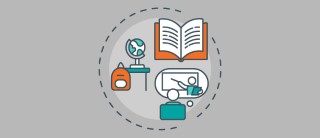Curriculum Reform as an Act of Social Justice
Curricular reform was considered as an essential approach to improving educational outcomes and attainment of and for students.
Description
The issue of curriculum reform has been discussed intensively in our region over the past two decades. Curricular reform was considered as an essential approach to improving educational outcomes and attainment of and for students. However, despite repeated attempts to reform the curricula, the educational outcomes of students are still low, especially in public sector schools. This has resulted in the persistence of the reality of inequality, poverty, and deprivation among large segments of society, especially the marginalized groups.
There are several questions that are important to ask when talking about curriculum reform, including:
Is curriculum reform enough, or do we need a radical change in the educational system and a rethinking of the curricula?
Do we tackle issues of different ideologies that influence current education policies in the Arab world during curriculum development or reform processes?
Do Ministries of Education and institutions responsible for developing and formulating curricula open dialogue between participants in the educational field about the various philosophies and theories that affect the process of curriculum reform?
What is the role of teachers, parents, students, and society in general in the process of developing and reforming curricula?
How do curricula relate to themes of social justice and equality?
Through this course, we aim to open spaces for dialogue and learning about these essential questions. These spaces of dialogue and learning are based on theoretical approaches and practical experiences shared by academics, teachers and practitioners in the field of education.
The main topics and content of this course are based on ideas presented at the Regional Curriculum Reform Conference held by the Center for Lebanese Studies in January and February 2021, and on consultations with teachers from all governorates of Lebanon, which took place during July and August 2021, and finally on literature and theories on the subject Curriculum with the sharing of ideas and experiences of many academics and teachers from the region.
This course enables participants to exchange ideas and experiences about developing and reforming curricula. By sharing their real experiences in education, especially from the perspective of equality and social justice. This course takes a collaborative approach, open to all teachers and professionals in order to share their experiences, skills and practices. This course allows participants to engage in discussions with colleagues from all Arabic-speaking countries to share ideas and open the way to talk about the subject of curricula, which is a topic we always thought was the preserve of policymakers. This course does not delve into how to design and develop curricula, but it is a step that gives us the opportunity to shed light on how to approach the idea of curricula and the impact of ideologies and politics on curriculum development processes.
There will be participation certificates for all participants once they have completed all the weeks and activities associated with each week
We wish everyone an effective and useful participation
What you’ll learn
Critical theories and practices of curricula
Linking the processes of creating and evaluating curricula to issues of social justice and equality
Connecting curriculum theories with practice, especially in complex contexts in our region
The integrated roles of society, especially teachers, parents and students, in building and reforming curricula
User Reviews
Be the first to review “Curriculum Reform as an Act of Social Justice”
You must be logged in to post a review.







There are no reviews yet.